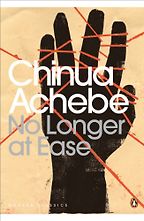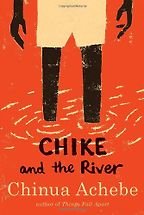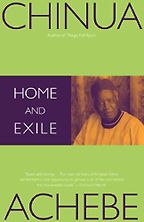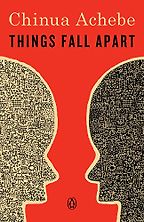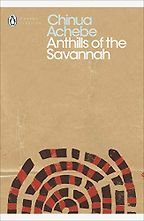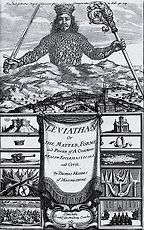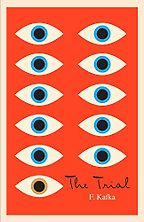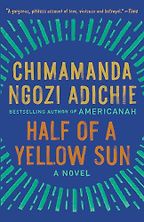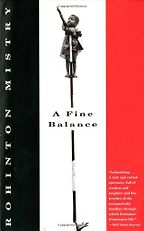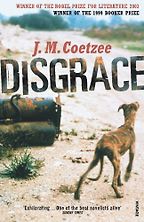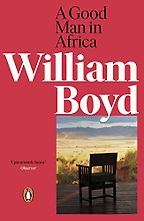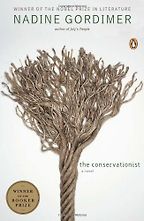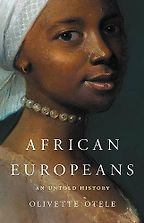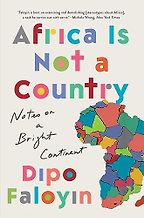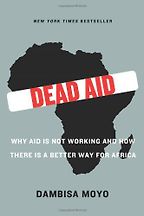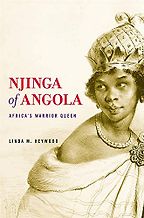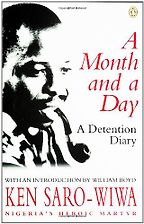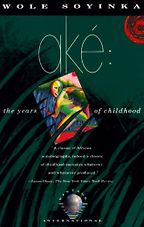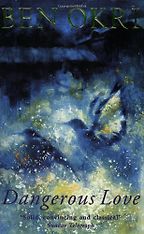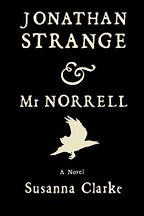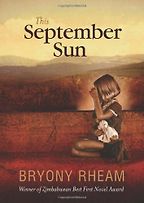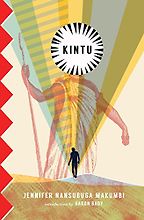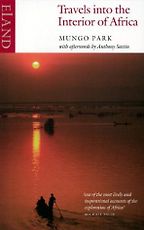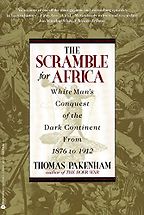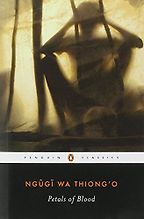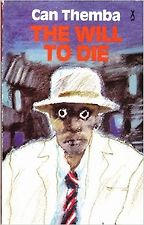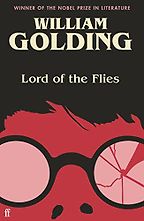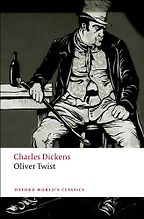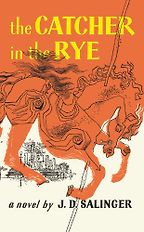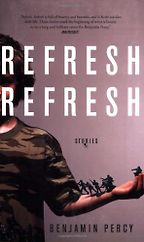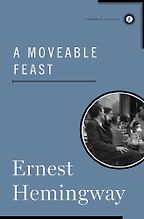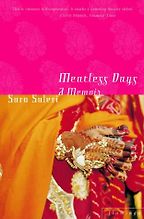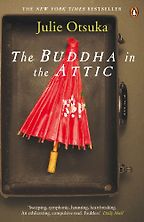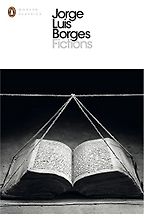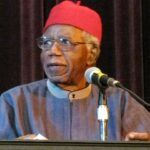
Books by Chinua Achebe
Chinua Achebe (1930-2013) was a Nigerian novelist. He achieved worldwide fame with his debut novel, Things Fall Apart (1958), which became a global bestseller, selling more than 20 million copies. Achebe would go on to write more than 20 books, including novels, short stories, essays and poetry. His writing has been recommended many times on Five Books.
“I read No Longer at Ease when I was going to school in Pakistan. It was the first novel by an African writer that I had ever read. In some sense it felt familiar. The main character leaves Nigeria, goes to study in Britain and is, as the title suggests, no longer at ease. It’s a novel that stayed with me, in part because it broadened my sense of who could write literature and what literature was supposed to be about. No Longer at Ease explores not just moving to a country but leaving a country and returning. The dynamic of somebody who moves in two directions—abroad and back again, was of real interest to me, as someone who had done that myself. I’ve bounced to and from Pakistan and America, and other places as well. The sense that we’re changed by migration—that home is no longer the same because we are no longer the same—was very powerful in that book and that’s part of why it sticks with me.” Read more...
The Best Transnational Literature
Mohsin Hamid, Novelist
“Chike and the River is about a boy who discovers his dreams. It’s like Oliver Twist. He is used to being pampered and being kept within the house, and then he goes and discovers the river on a trip to the city. That wakes up this taste, or quest, for a deeper understanding of life. I think the encounter with that element, water, actually opens the window to him developing a kind of internal philosophy of life. That is what the book is about. It’s a coming-of-age story.” Read more...
The best books on Boyhood and Growing Up
Chigozie Obioma, Literary Scholar
“He is a brilliant narrator. He can say anything and he will captivate you and you will listen. He is a great performer. Here he is writing about the confrontation between Western culture and the traditional culture and he gives you a historical framework in these essays – but he does it in a very personal way. “ Read more...
Helon Habila, Novelist
“Absolutely compulsory reading for anybody who wants to understand the impact that the Europeans had on Africa—particularly those of the missionaries. The colonial officers were accompanied by missionaries intent on ‘civilising’ Africa. Chinua Achebe really captures in this masterpiece the tensions of that period. If anybody were to read only one book about Africa, I’d put Things Fall Apart right at the top of my list.” Read more...
Books About African History by African Writers
Zeinab Badawi, Broadcaster
“If you’ve lived in a country which isn’t under a dictatorship and move to a country that has been for most of the last decade, you inevitably wonder how it is that these bloodthirsty pantomime figures came to be running the place. Anthills gives the human side of the story. A group of friends have all known each other in their youth. Over time they go off in their different directions. One of them becomes a key aide to the dictator, another becomes a journalist, and the book makes this gradual divergence believable. The dictator doesn’t become a dictator overnight, it’s a step-by-step thing, a bit like the story of the frog in the boiling water. The writing is very lively, the book gives you an understanding of how people who were genuinely admirable liberation-style heroes can turn into despots over time. It’s a much more sophisticated and human account of dictatorship than the one-line, comic-book dismissal you often get.” Read more...
Michael Peel, Foreign Correspondent
Interviews where books by Chinua Achebe were recommended
The best books on Nigeria, recommended by Michael Peel
The FT‘s former West Africa correspondent talks us through five books that helped him to understand Nigeria.
The best books on Being White in Africa, recommended by Justin Cartwright
The award-winning novelist thinks Africans want to know how it is that white men have got their hands on all the money. He picks five books on what it means and meant to be white in Africa
Books About African History by African Writers, recommended by Zeinab Badawi
The history of Africa is rich with stories of mighty empires, canny politicking, and complex belief systems. But too often history books written by outsiders focus solely on its colonial past. It’s time to read more books about African history by African writers, argues the broadcaster Zeinab Badawi—whose African History of Africa was recently shortlisted for a Nero Book Award. Here, she recommends five brilliant books to get you started.
The best books on Nigeria, recommended by Helon Habila
The award-winning Nigerian writer, Helon Habila, picks his favourite books about Nigeria.
The Best Historical Fiction, recommended by Tendai Huchu
What is historical fiction? Does it have to be historically accurate? Zimbabwean novelist Tendai Huchu talks us through five important examples of historical novels, including three set in Africa.
The best books on Colonial Africa, recommended by Sam Kiley
‘Wherever you go today in the Congo, you will find monstrous warlords. But you will find far more volunteer nurses and Red Cross workers and teachers who haven’t been paid for 20 years but are still doing their job, not allowing things to fall apart.’
The best books on Boyhood and Growing Up, recommended by Chigozie Obioma
The author chooses his top five books on boyhood and growing up, major themes of his Booker-nominated debut The Fishermen.
The Best Transnational Literature, recommended by Mohsin Hamid
Beleaguered ‘citizens of nowhere’ will be pleased to know they have their own literary genre. For anyone who has ever wondered where they belong, or why, when you leave your home country, it’s never the same when you return, here are the best five books to read—including some by the greatest authors of the 20th century.
